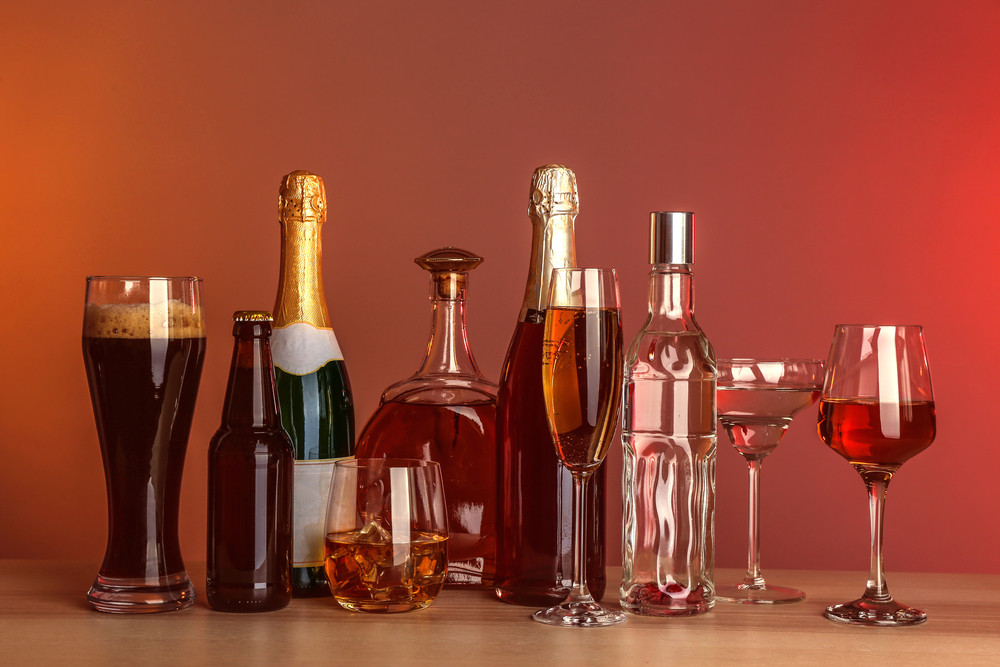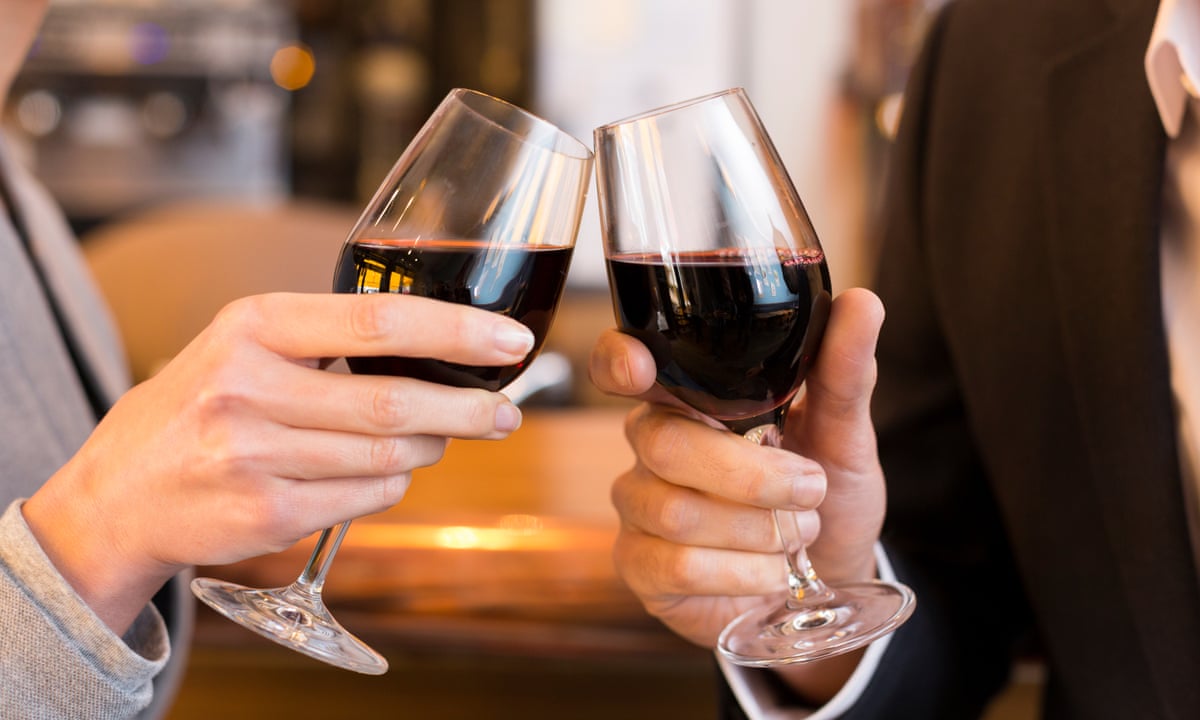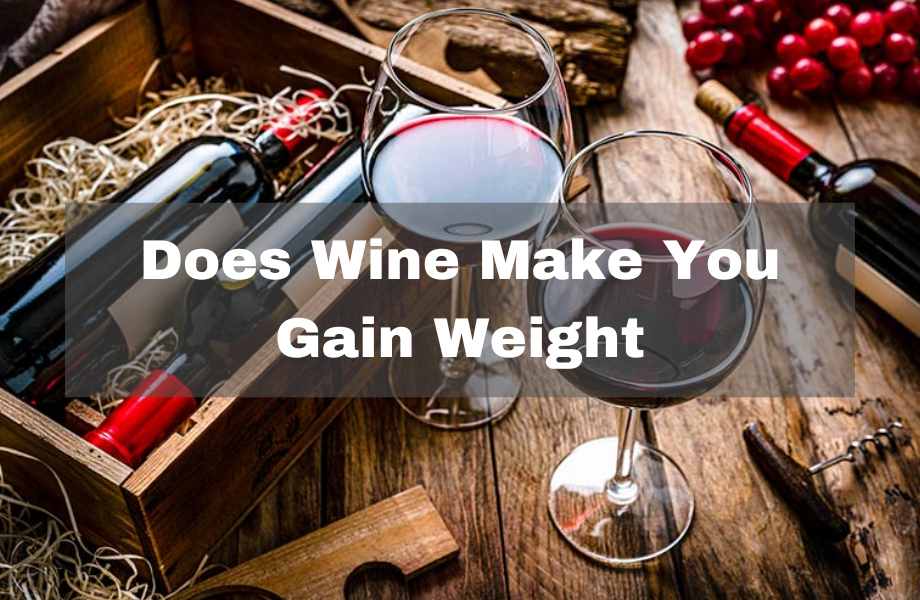Drinking wine will not directly make you fat, but it will make you hungry, which can lead you to consume too many calories. So, we could say that wine can indirectly make you gain weight.
In this article, we will examine wine’s effects on the body and look at some strategies to avoid overeating when enjoying your favorite bottle of wine.
Alcohol Metabolism

Wine has very few calories compared to beer, but it still has some calories. An 8 oz glass of wine, for example, will contain around 200 calories. However, it is not the calories from alcohol that will lead to weight gain.
Alcohol contains 7 calories per gram. The calories in wine come from alcohol and from carbohydrates.
The human body digests alcohol differently than it does food. Enzymes in the liver prioritize the processing of alcohol over the other three macronutrients (proteins, carbohydrates, and fats). Only when it has completely metabolized the alcohol will it switch back to digesting the food you have consumed.
A result of the body’s prioritizing alcohol over food is that the brain senses a need for more insulin to transport the alcohol molecules through the bloodstream. This results in a surge of insulin that removes sugar from the blood. So, you end up with very low blood sugar levels.
The body responds to this low blood glucose level by craving sugary foods. That is why you get munchies when you drink alcohol, including wine.
How to Avoid Weight Gain When Drinking Wine
So far, we have established that it is not the alcohol calories in the wine itself that can lead to weight gain, but the food you eat as a result of the craving for food that drinking wine brings on and the resulting fluctuation in blood sugar levels.
There are certain strategies you can take to ensure you don’t succumb to the craving for unhealthy food while drinking wine. The first is to eat a good portion of protein before you start drinking wine.
Protein is the most satiating of the macronutrients. It also has the highest thermic value. It takes more calories to digest protein than fat or carb food. This combination means that protein is a smart choice to give you a feeling of satiety and prevent the munchies when you are drinking.
Another strategy is to limit your consumption of wine. If you have just a glass or two, you are far less likely to get a food craving than if you had a whole bottle.
We recommend sticking to just a single glass of wine if you weigh less than 140 pounds. If you are over 140 pounds, limit yourself to two glasses of wine.
What If You Do Get Drunk?

It seems logical to imagine that eating things like cheesy bread, pizza, and apple pie could aid in the absorption of alcohol if you get intoxicated. The truth is that nothing can stop or slow down the drawn-out, laborious process that your liver will have to go through to meticulously transform each milligram of toxic acetaldehyde into relatively benign acetic acid.
Drink plenty of water to maintain fluid levels and be kind to your liver.
Wine Drinking Tips to Stay Lean
These simple tips will allow you to enjoy winter without packing extra pounds.
Earn your Wine Treat

Early-evening walks will keep your metabolism up and reduce the need to eat, which we frequently feel at the end of the day. This behavior may also lessen binge drinking.
Wine is intriguing because it also speeds up metabolism for roughly 70 to 90 minutes. Since alcohol is a diuretic, it is crucial to drink water when drinking wine and liquor to keep the balance of water in your cells.
Avoid Wine Before a Meal

Save your wine for your dinner because drinking it 30 minutes before a meal has been found to increase appetite. If you enjoy both cooking and drinking, consider dividing your wine glass into two servings of 3 ounces each.
Additionally, drinking wine after a meal increases the likelihood that you will absorb all of the calories and have fewer side effects.
Switch to Red Wine

Red dry wine has been shown to be very beneficial for our bodies. It is far higher in antioxidants than white wine. Red wine contains several polyphenols, including the potent antioxidant proanthocyanidin. In fact, certain red wines contain higher levels of antioxidants than commercial grape juice, raw blueberries, and even wonder fruits like aça. Even pomegranate juice will lose against a full-bodied red wine in the area of antioxidants.
Polyphenols, which are antioxidants found in red wine, may aid in defending the heart’s blood vessel lining. Red wine contains resveratrol, a polyphenol that has drawn attention for its potential health advantages.
Resveratrol may lessen low-density lipoprotein (LDL) cholesterol (the “bad” cholesterol), protect blood arteries, and prevent blood clots.
Studies on resveratrol, however, are conflicting. According to some research, resveratrol may be associated with a reduced risk of blood clotting and inflammation, which may reduce the risk of heart disease. Other research, however, did not support resveratrol’s role in preventing heart disease.
The alcohol by volume content of red wine is between 12-15%.
Avoid Late Night Drinking
Avoid drinking too late if you want to consume wine and maintain your weight. That’s because alcohol behaves in our bodies similarly to carbohydrates. If you put an end to all daytime eating and drinking about 8 to 8:30 pm — that is, if you go to bed at approximately 12 am — you will also be able to get better quality sleep.
Avoid Drinking Wine at Home
If you are worried about your weight, we recommend not having wine at home. That way, you will be less likely to indulge. Along the same lines, you should remove snack foods and other highly processed carbs from your home.
Summary
Wine, by itself, will not lead to weight gain. However, excessive wine consumption can lead to hunger pangs, causing you to overeat so that you get the problem calories from food. So, indirectly, it could be said to lead to weight gain. Of course, this is true of all excessive alcohol consumption.
To minimize the risk of consuming extra calories around your wine consumption, avoid heavy drinking, stay away from sweet wines, follow a healthy diet, prioritize protein, and switch to red wine.
Frequently Asked Questions
Will wine make me fat?
No, the wine will not make you fat. But it may cause you to eat more. One of the effects of alcohol is that it gives you munchies. To avoid this, limit your alcohol level to just one or two drinks.
If you are a beer drinker, switching to red wine will help get rid of a beer belly, reduce blood pressure, and get rid of fat deposits. If you have a great deal of weight to lose, we recommend consulting your health professional.
How many calories are in a glass of wine?
An 8 oz glass of wine contains about 200 calories. This is considerably less than you would find in a glass of beer. Red wine is the healthiest choice of wine. Alcohol contains 7 calories per gram.







